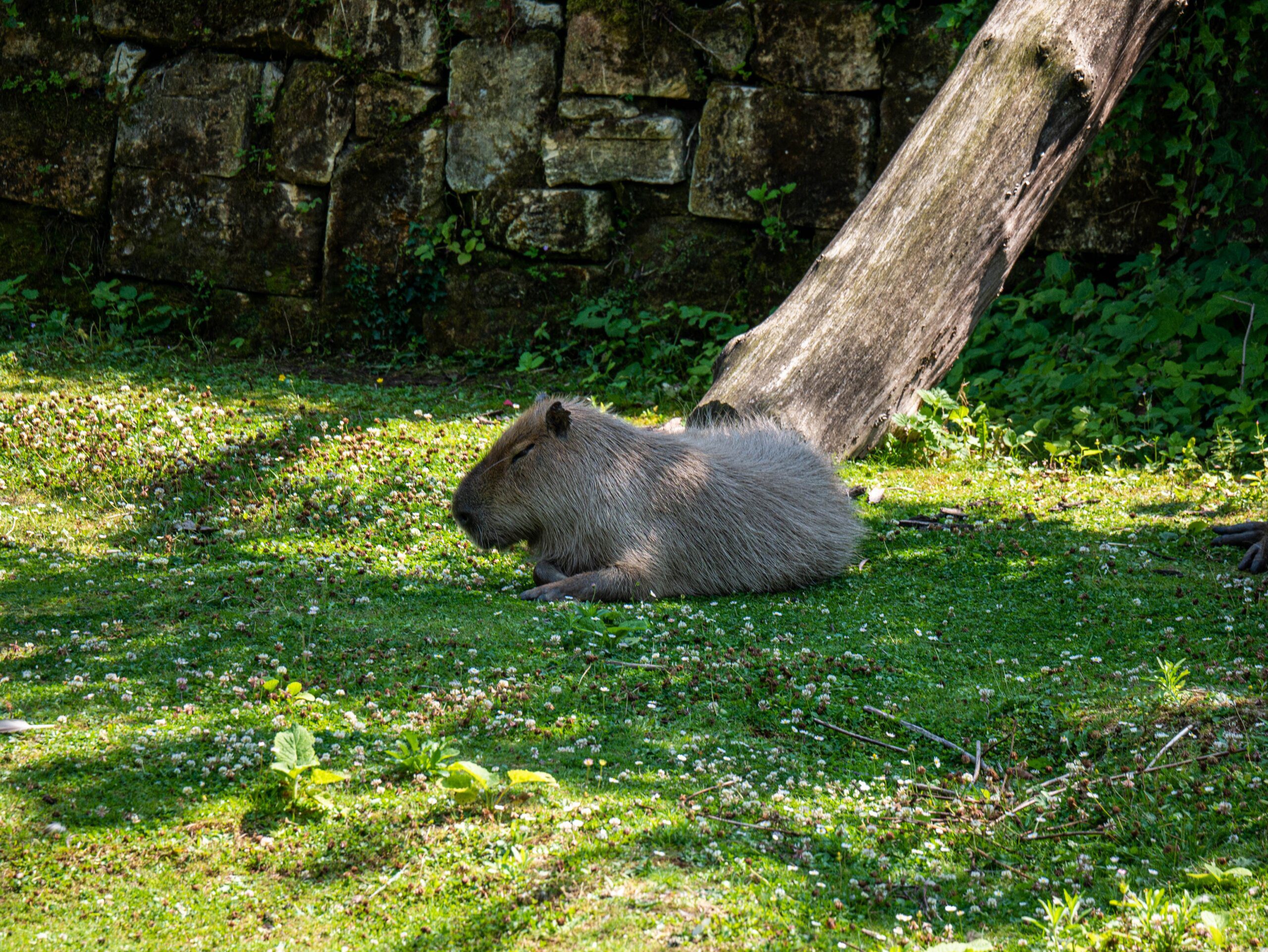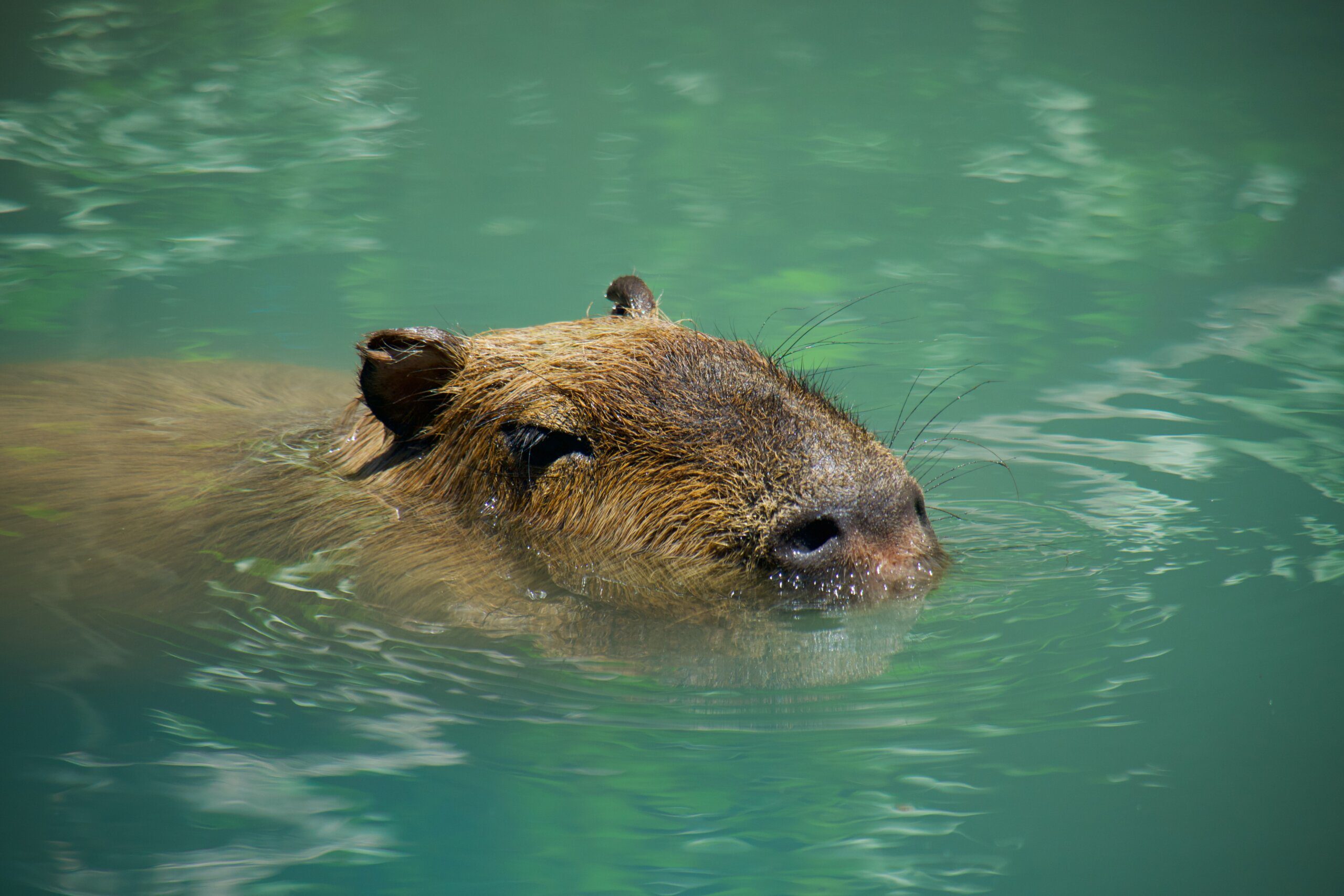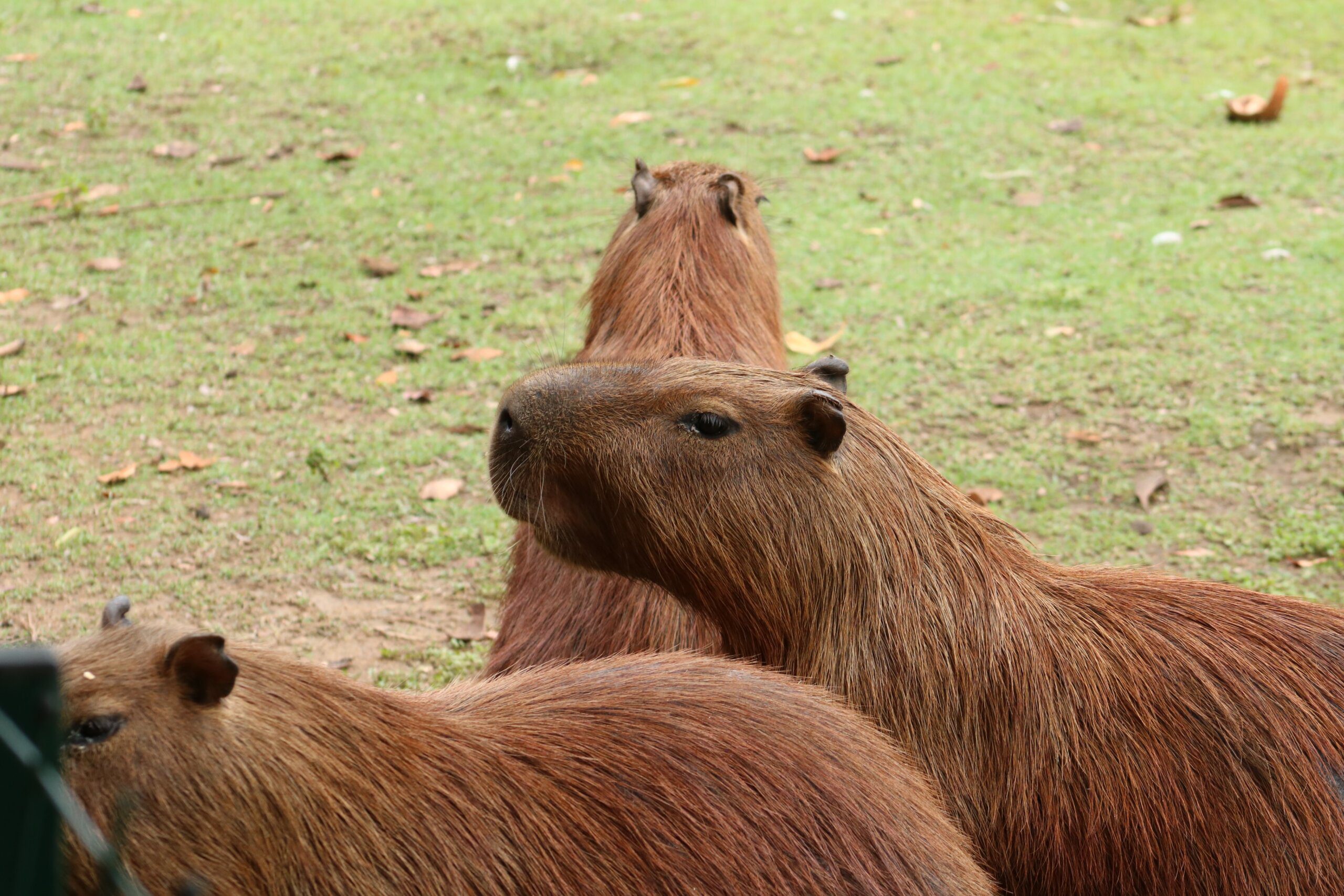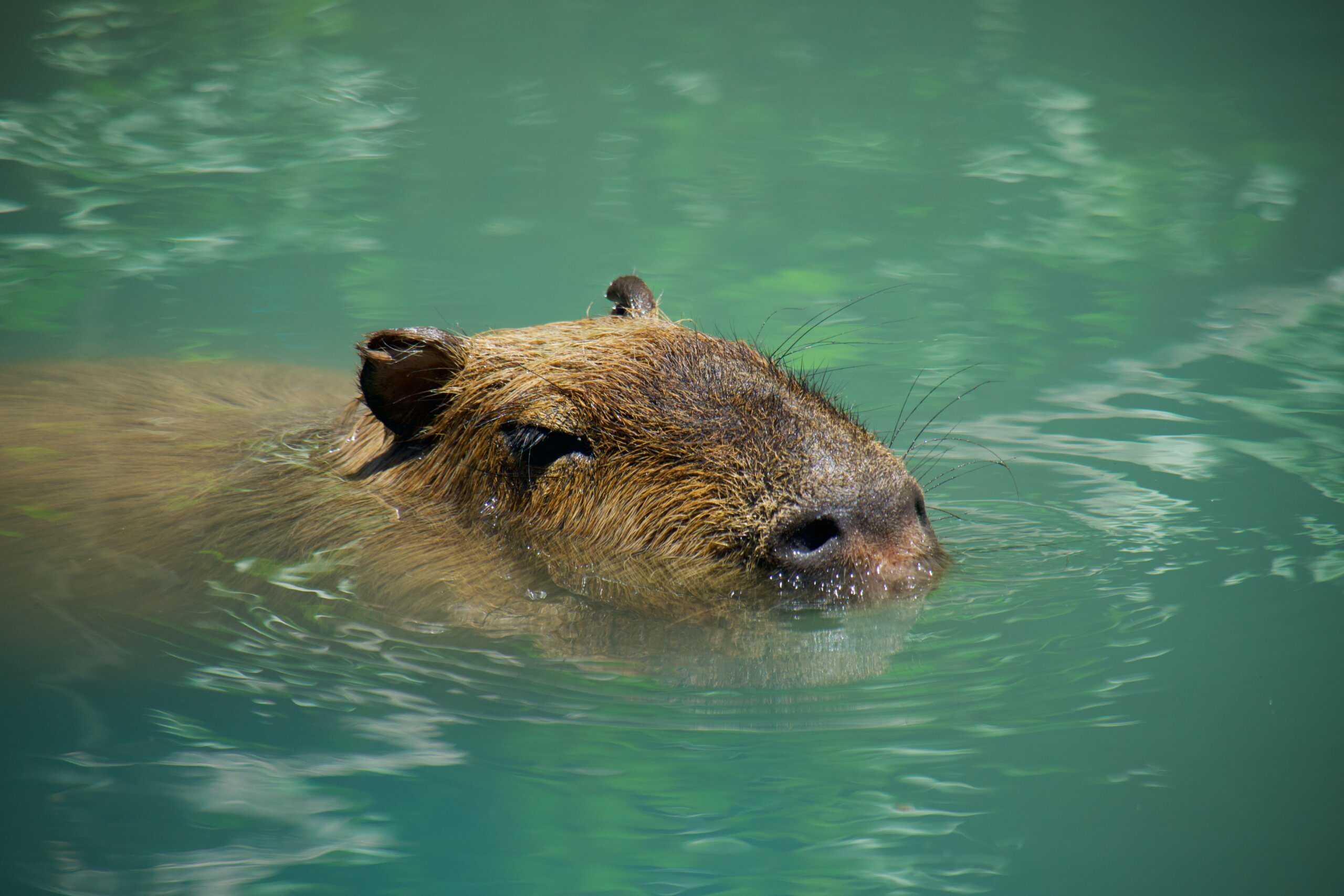If you’ve ever dreamed of having an unconventional and unique pet, look no further than a capybara. Known for their friendly and sociable nature, these adorable semi-aquatic creatures are becoming increasingly popular as pets. In this ultimate guide, you’ll discover everything you need to know about keeping capybaras as pets, from their ideal living conditions to their dietary needs and beyond. Whether you’re a seasoned pet owner or considering your first furry companion, get ready to embark on an extraordinary journey with these fascinating animals.

Choosing a Capybara as a Pet
Understanding Capybaras
Capybaras are fascinating creatures that have become increasingly popular as pets. Native to South America, they are the largest rodents in the world and have a friendly and sociable nature. Before deciding to bring a capybara into your life, it is essential to understand their unique needs and characteristics. Capybaras are semi-aquatic animals that require access to water, preferably a swimming area, to thrive. They are also highly social animals and should be kept in pairs or small groups to ensure their emotional well-being.
Legal Considerations
Before welcoming a capybara into your home, it is crucial to familiarize yourself with the local regulations and laws regarding exotic pet ownership. In many places, capybaras are considered exotic animals and may require permits or licenses to keep legally. Some regions have restrictions on owning capybaras due to their unique needs and potential impact on ecosystems if released into the wild. It is essential to research and comply with all legal requirements to provide the best possible care for your capybara and avoid any legal complications.
Commitment and Responsibilities
Capybaras can live up to 10-12 years in captivity, so it is vital to consider the long-term commitment and responsibilities that come with owning one. They require ample time, effort, and attention to ensure their health and well-being. As social animals, they need companionship and interaction with their human caregivers. It is crucial to assess your lifestyle, availability, and willingness to meet the physical and emotional needs of a capybara before making the decision to bring one into your home.
Preparing Your Home for a Capybara
Ensure Sufficient Space
Capybaras are large animals and require ample space to move around comfortably. Before bringing a capybara home, assess the available space in your home and ensure you can provide a suitable environment for them. Ideally, capybaras should have access to both indoor and outdoor areas. Indoor spaces should be spacious and provide enough room for them to walk and play. Outdoor spaces should be securely fenced to prevent escape and provide opportunities for grazing and exploration.
Securing the Environment
As capybaras have a curious nature and love to explore, it is essential to secure the environment to prevent accidents and ensure their safety. Remove any toxic plants or substances from their reach and ensure all electrical cords and outlets are safely covered. Capybaras are known for their ability to chew through various materials, so it is crucial to cap-proof your home by securing loose wires and blocking access to potentially harmful objects or areas.
Creating a Suitable Habitat
In addition to providing ample space, creating a suitable habitat for your capybaras is essential for their well-being. They require a semi-aquatic environment, so providing access to water is crucial. This can be achieved by either having a large swimming pool or a dedicated enclosure with a shallow pool or pond. Additionally, capybaras need access to a dry, sheltered area where they can rest and take shelter from extreme weather conditions. This area should be well-insulated and equipped with comfortable bedding material to ensure their comfort.

Feeding and Nutrition
Understanding Capybara Diet
Proper nutrition plays a vital role in the health and longevity of capybaras. Their diet primarily consists of grasses, hay, and fresh vegetables. It is important to replicate their natural diet as closely as possible to ensure they receive all the necessary nutrients. Additionally, capybaras have a unique digestive system and require a high-fiber diet to maintain their well-being. Avoid feeding them processed foods or foods high in sugar, as these can be detrimental to their health.
Feeding Schedule and Portions
Establishing a regular feeding schedule is crucial to ensure your capybara’s health and prevent obesity. Capybaras should have access to fresh food and water at all times. It is recommended to provide food in small portions throughout the day rather than a single large meal. This mimics their natural grazing behavior and helps prevent digestive issues. Monitor your capybara’s weight regularly and adjust their portions accordingly to maintain a healthy body condition.
Choosing the Right Food
When selecting food for your capybara, opt for high-quality grasses and hay as the foundation of their diet. Additionally, offer a variety of fresh vegetables such as carrots, sweet potatoes, and leafy greens. Avoid feeding them foods that are toxic to their species, such as onions and garlic. Consulting with a veterinarian specializing in exotic pets can provide you with specific dietary recommendations tailored to your capybara’s needs.
Browse our charming Capybara-themed products now!
Socialization and Bonding
The Importance of Socialization
Capybaras are social animals and thrive when provided with companionship. Keeping them alone can lead to loneliness and depression. It is strongly recommended to have at least two capybaras to fulfill their need for social interaction. If finding another capybara is not feasible, consider providing opportunities for interaction with other animals or spending quality time with your capybara to ensure they have social stimulation.
Providing Companionship
As capybaras are highly sociable, spending time with them is crucial for their emotional well-being. Interact with your capybara daily, offering gentle petting, grooming, and talking to them. Engaging in activities that they enjoy, such as swimming or exploring outdoors, can help strengthen the bond between you and your capybara. Remember, they are intelligent animals that need mental stimulation and companionship to thrive.
Establishing a Bond
Building a bond with your capybara requires time, patience, and consistency. Offer them treats and rewards when they exhibit positive behavior, such as coming when called or following basic commands. Use positive reinforcement techniques to encourage desired behavior and avoid punishment-based training methods. By creating a positive and trusting relationship, you can establish a strong bond with your capybara and ensure a fulfilling companionship.

Exercise and Enrichment
Physical Exercise Needs
Capybaras are active animals that require regular exercise to maintain their physical and mental well-being. Providing them with ample space to run, swim, and explore is essential. Regular outdoor activities, such as supervised walks or access to a securely fenced area, can help fulfill their exercise needs. Consider incorporating playtime, such as retrieving balls or engaging in water games, to further stimulate their muscles and promote overall fitness.
Mental Stimulation through Enrichment
In addition to physical exercise, capybaras also require mental stimulation to prevent boredom and destructive behavior. Engage them with puzzle toys, food-dispensing toys, and interactive play to keep their minds active. Providing branches, logs, and other natural elements in their environment can also encourage natural behaviors and provide entertainment. Regularly rotate their toys and introduce new objects to keep them mentally engaged and prevent monotony.
Playtime Activities
Capybaras are playful animals and enjoy interactive playtime with their human caregivers. Engage them in games like hide-and-seek, gentle races, or obstacle courses. Use positive reinforcement techniques to encourage participation and reward their efforts. Playtime not only promotes physical exercise but also strengthens the bond between you and your capybara.
Healthcare and Veterinary Needs
Finding an Exotic Veterinarian
Capybaras have specific health needs that may differ from traditional domestic pets. It is crucial to find a qualified and experienced exotic veterinarian who specializes in capybara care. They will understand the unique requirements, potential health issues, and be able to provide essential medical care, including vaccinations, parasite prevention, and routine check-ups. Research local veterinarians with experience in exotic pet care and consult with them regarding the health and well-being of your capybara.
Routine Check-ups
Regular veterinary check-ups are essential to ensure your capybara’s overall health and detect any potential health issues early on. During these check-ups, the veterinarian will conduct a thorough examination, including assessing weight, dental health, and general physical condition. They may also recommend specific tests or screenings to monitor for any underlying health conditions. It is crucial to follow the veterinarian’s recommendations for vaccinations, parasite prevention, and dental care to keep your capybara in optimal health.
Common Health Issues
Capybaras can be susceptible to various health issues, including obesity, dental problems, and respiratory infections. To prevent these conditions, it is vital to provide a balanced diet, monitor their weight, and regularly check their teeth for any signs of decay or overgrowth. Additionally, ensuring a clean and well-maintained environment, with proper ventilation and appropriate temperature, can help prevent respiratory infections. Regular veterinary care and early intervention are key to managing and treating any health issues that may arise in your capybara.
Grooming and Hygiene
Regular Coat Maintenance
Capybaras have dense, coarse hair that requires regular grooming to keep it clean and healthy. Brush their coat gently using a soft-bristled brush to remove any debris, dirt, or loose hair. This not only keeps their coat in good condition but also allows you to bond with your capybara through gentle grooming sessions. Regular grooming also helps in detecting any skin issues or parasites that require veterinary attention.
Nail Trimming
Capybaras’ nails grow continuously and can become overgrown if not trimmed regularly. Long nails may cause discomfort and increase the risk of injury during playtime or routine activities. Use appropriate nail clippers made for large animals and carefully trim their nails, taking care not to cut too close to the quick. If you are unsure or uncomfortable with nail trimming, consult with a veterinarian or a professional groomer for assistance.
Bathing and Cleaning
Capybaras are naturally clean animals and groom themselves regularly. However, providing them with occasional baths can help keep their coat and skin in optimal condition. Use lukewarm water and a mild, pet-safe shampoo specifically formulated for capybaras or similar animals. Rinse them thoroughly and dry them gently with a clean towel. It is important to ensure that the bathing area is clean and hygienic to prevent any skin infections or irritations.
Training and Behavioral Considerations
The Importance of Training
Training is essential to ensure the safety, well-being, and proper behavior of your capybara. Start the training process early on and use positive reinforcement techniques to encourage desired behaviors. Focus on basic commands such as sit, stay, and come, which will help you manage their behavior effectively. This also allows you to establish yourself as the leader and enforce boundaries, which is crucial in preventing any destructive or unwanted habits.
Basic Commands and Obedience
Teaching your capybara basic commands enhances their safety and allows for a smoother interaction with the environment. Train them to respond to cues such as their name, food-related commands, and recall commands. Use treats and rewards to reinforce positive behavior and be consistent in your training sessions. With time and patience, your capybara will learn to understand and respond to these commands, making everyday interactions easier for both of you.
Managing Chewing and Digging Behaviors
Capybaras have a natural urge to chew and explore their surroundings. To prevent destructive chewing or digging behaviors, it is important to provide appropriate outlets for these behaviors. Offer them chew toys made specifically for capybaras or large rodents. Provide digging opportunities, such as sandboxes or designated digging areas, where they can engage in their natural behaviors. Redirect their attention and utilize positive reinforcement when they engage in appropriate behaviors to discourage unwanted chewing or digging habits.
Traveling with Your Capybara
Carrying and Transporting
Traveling with a capybara requires careful planning and consideration. Capybaras can be transported in large, secure carriers or crates made specifically for their size. Ensure the carrier is well-ventilated and provides enough space for them to lie down comfortably. Secure the carrier in your vehicle to prevent shifting during the journey. Additionally, cover the carrier with a soft blanket to create a sense of security and reduce any potential stress.
Planning for Safe Travel
When traveling with your capybara, it is important to prioritize their safety and well-being. Ensure water and food are readily available during the journey, and plan adequate rest stops to allow them to stretch their legs and relieve themselves if needed. Keep the temperature in the vehicle comfortable and avoid exposing them to extreme heat or cold. It is also advisable to research pet-friendly accommodations or destinations to ensure a smooth and enjoyable travel experience.
Accommodations during Trips
When staying in accommodations, it is crucial to inform them in advance about your capybara’s presence. Ensure the place you are planning to stay in is capybara-friendly and can accommodate their unique needs. Some accommodations may have specific rules or restrictions regarding exotic pets, so it is essential to communicate clearly and get the necessary approvals beforehand. Providing a safe and comfortable environment during your trip will contribute to a positive experience for both you and your capybara.
Making the Decision
Assessing Your Lifestyle
Before deciding to bring a capybara into your life, it is important to assess your lifestyle and ensure it aligns with the needs of this unique pet. Capybaras require a significant time commitment, socialization, and a suitable living environment. Consider factors such as your work schedule, availability for companionship, and willingness to invest time and effort into their care. Assessing your lifestyle realistically will help you make an informed decision and provide the best possible care for your capybara.
Financial Considerations
Owning a capybara comes with financial responsibilities, including their enclosure setup, vet care, food, and enrichment items. It is important to consider the overall cost of keeping a capybara and ensure it fits within your budget. Research the estimated expenses, including regular veterinary check-ups, vaccinations, appropriate enclosure setup, and ongoing dietary needs. Being financially prepared before bringing a capybara into your home will ensure you can provide for their needs without compromising your own financial stability.
Alternative Options
If, after careful consideration, you find that owning a capybara may not be the best fit for you, there are alternative options to consider. Some local wildlife or exotic animal sanctuaries may offer opportunities to volunteer or interact with capybaras and other exotic animals. This allows you to fulfill your fascination and love for capybaras while still maintaining a responsible approach to their care. Remember that responsible pet ownership includes making the best decision for both the animal and your own lifestyle.
In conclusion, capybaras can make unique and rewarding pets, but they require a significant commitment of time, effort, and resources. Understanding their needs, providing a suitable environment, and ensuring their social and emotional well-being are crucial for their overall health and happiness. By considering all aspects, assessing your lifestyle, and weighing the necessary responsibilities, you can make an informed decision about whether a capybara is the right pet for you. Remember to always prioritize the welfare of the animal and seek professional advice to ensure the best care for your capybara companion.






